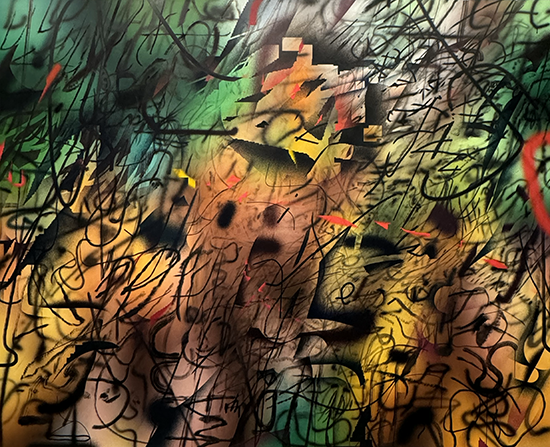Cognitive Mapping:
Althusser, Sellars & Giannotti Instructor: J.-P. Caron Date & Time: January 18th, 25th, February 1st and 8th 09:00-11:30 ET

DESCRIPTION: In Grundrisse, Marx comments on his method for the critique of political economy:
“The population is an abstraction if I leave out, for example, the classes of which it is composed. These classes, in turn, are an empty phrase if I am not familiar with the elements on which they rest. E.g., wage labor, capital, etc,” culminating in the seminal formula “The concrete is concrete because it is the concentration of many determinations, hence unity of the diverse.”
According to Althusser, fashioning concepts that are adequate to their objects is the domain of proper science, which is understood as the business of theoretical practice, amounting to 1- the elaboration of a set of generalities 2- through the mobilization of the resources of generalities and 3- out of the previously accepted set of ideological generalities. The processual character of the constitution of Althusserian science is similar to how Wilfrid Sellars engages with the development of science, while the successive images of man in the world are constituted out of our linguistic resources.
In this Seminar, we will compare the two pictures of science as proposed by Althusser and Sellars, with an eye on the problem of grasping the whole, which is the subject of Marx’s introductory quote. In this sense, both Althusser and Sellars are seen engaging in the problem that Fredric Jameson famously called cognitive mapping. However, if the Jamesonian cognitive mapping, in the case of science, consists of the relationship of the subject of knowledge to the whole of which it is a part, in the Althusserian picture of ideology, it involves the “imaginary relationship of individuals to their conditions of existence.” This double dependency puts pressure on how subjects are determined by language- not only as a means of description but also as a normatively-laden medium capable of constituting agents as such. However, in this process, language competes with Capital in its constraining of subjectivity. Between norms and causes, we shall find a way out of the conundrum created by the ramification of these paths.
Finally, we shall revisit the framework offered by Brazilian philosopher José Arthur Giannotti in his historical debate with Althusser concerning operational schemes and the constitution of abstract diagrams of action by Capital. Giannotti is an especially interesting example for he engages with the Althusserian school early on, in 1967, with his Contra Althusser, offering a very robust account of real abstraction in his 1980’s Labor and Reflection, finally becoming a Wittgensteinian scholar by 1995’s Presentation of the world. While some commentators find Giannotti’s change from Marx to Wittgenstein as a sign of capitulation, for us it might offer an interesting path for relating the critique and description of Capital and the critique and description of language, as they have been presented in the program of the so-called “Post-Sellarsian Marxism”.
Here, the wager is that these mediations will furnish us with a more thorough understanding of how social synthesis operates in its multi-layered complexity.
Session 1: Cognitive Mapping & the Althusserian cut
Starting with Fredric Jameson’s conceptualization of cognitive mapping, we offer the justifications of the Althusserian reading of Marx as divided into two phases deriving from the division between ideology and science which is part and parcel of Althusser’s thinking.
Session 2: Sellars between fact & description
In this session we will address this question, can the constitution of the scientific image in the Sellarsian framework be related to the constitution of science for Althusser?
Session 3: Althusser on ideology
In this Session, we will look at Althusser’s notion of Ideology as a possible mediator between the Sellarsian manifest and scientific images, undercutting their distinction. Here, the Sellarsian notion of linguistic normativity will be looked at as a possible mediator between the Althusserian science and ideology, blurring their distinctions.
Session 4: Giannotti’s alternative
In the last Session, we will look at Giannotti’s account of real abstraction contra Althusser’s division between science and ideology, examining Giannotti’s succeeding account of non-verbal language games as a more encompassing category and the problems that Wittgenstein brings to the understanding of Capital.
IMAGE: Julie Mehrethu, Loop B Lozano Bolsonaro Eve 2019-2020.
To see The New Centre Refund Policy CLICK HERE.
To see The New Centre Refund Policy CLICK HERE.